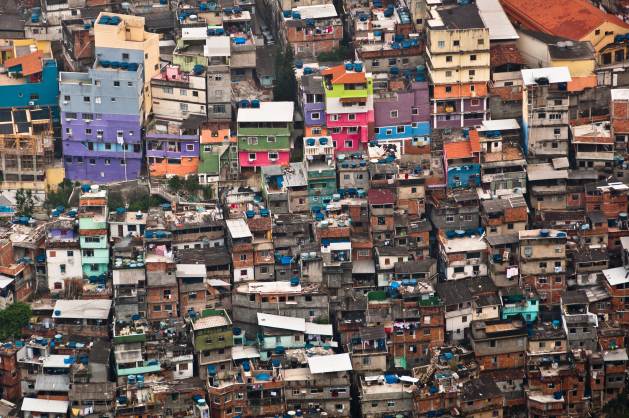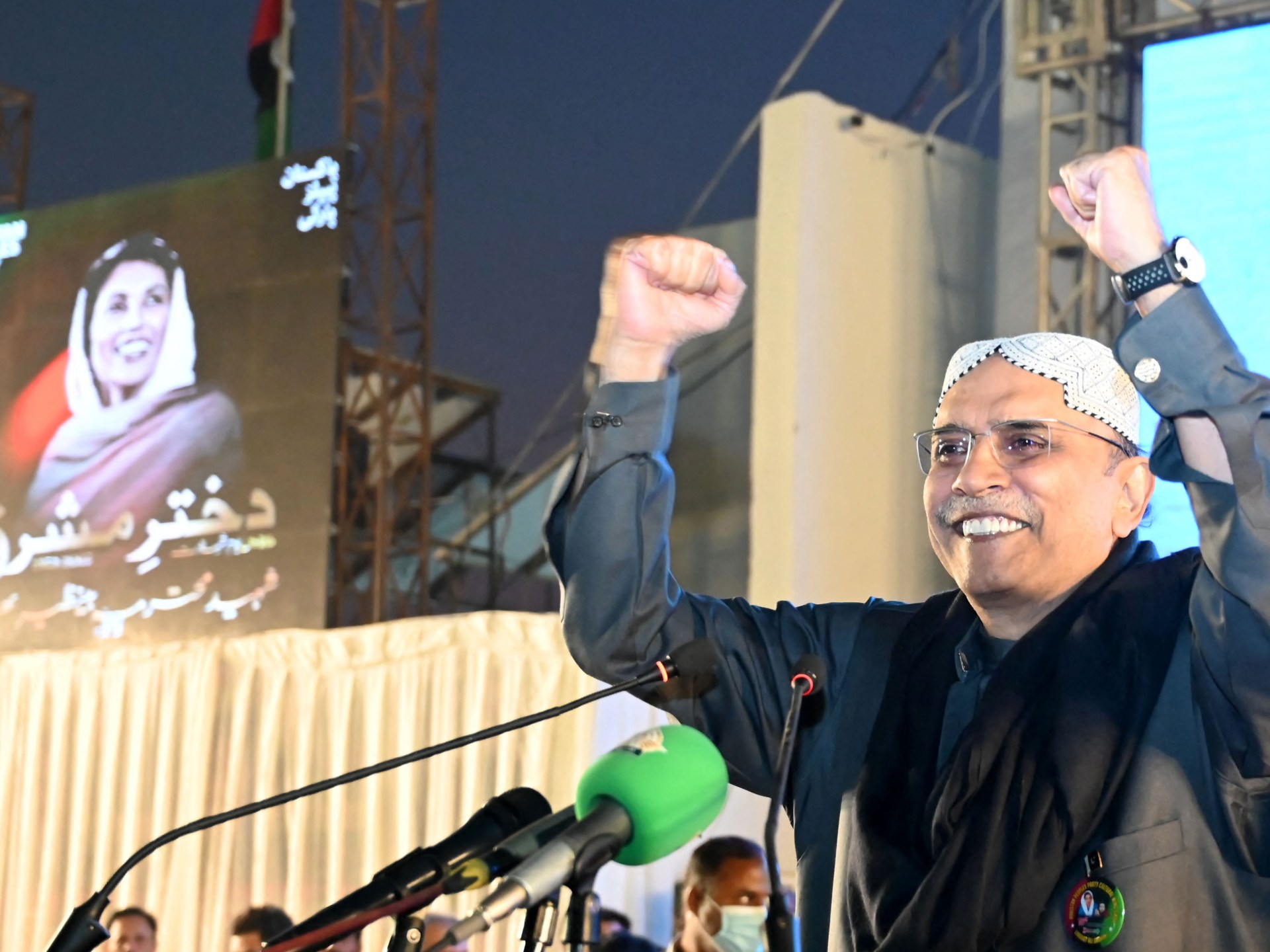Portugal braces for snap election as far right advances | Politics News
Viana do Castelo, Portugal – It’s been nearly three months since Portugal’s hard-right party, Chega, held its annual congress in the northern city of Viana do Castelo.
But its electoral propaganda remains fixed to almost every lamp-post on the main avenue, trumpeting one of its key messages for next Sunday’s general elections: “We will end corruption and [get] jobs for the boys in Portugal!”
Graft and its consequences certainly play a pivotal role in these snap polls, Portugal’s third in five years.
So, too, will the seemingly unstoppable rise of Chega, already the country’s third-largest parliamentary party behind the ruling Socialist Party (PS) and the mainstream centre-right formation, the Social Democratic Party (PSD).
But along with the wearily familiar tale of a hard-right European populist party netting protest votes from centrist formations battered by scandals, at the grassroots level it’s also evident the Portuguese electorate wants other issues, much closer to people’s everyday lives, to form part of the narrative of this March’s poll.
The March 10 elections were called after long-standing Prime Minister Antonio Costa resigned amid the fallout from a corruption investigation into the Socialist government’s handling of various major environmental projects.
While Costa himself has not faced any charges and denies all wrongdoing, recently it emerged that another former Socialist premier, Jose Socrates, is to stand trial over allegations of graft, fraud and money laundering to the tune of 34 million euros ($37m) during his 2005-2011 administration.
Nor has the PSD emerged unscathed from the spotlight into public corruption cases, after two of its top party officials in the Madeira Islands recently had to resign over a graft investigation.
Meanwhile, the Chega party’s bubble of popularity continues to expand.
After taking 1.3 percent of votes in 2019’s election and 7.3 percent in 2022, polls for next Sunday’s elections put the party soaring to 17 percent support.
That’s still well behind the PS and the main opposition Democratic Alliance (AD), the coalition of centre-right parties led by the PSD, who are currently running neck and neck at around 28 percent.
But it is more than enough to give Chega – which advocates for the death penalty and chemical castration for repeat rapists and whose leader Andre Ventura has made xenophobic rants about “uncontrolled Islamic immigration” – a potential kingmaker role in a hung parliament.
“I think that Chega’s increase, a novelty in the Portuguese context but expectable if one observes the political panoramas of other established democracies, mainly has to do with disappointment with how the current government has performed, together with the idea that a [future] centre-right government would not do things very differently,” Jose Santana Pereira, professor of political science at the University Institute of Lisbon, told Al Jazeera.
“Also, the corruption scandals may contribute to the understanding of both parties as similar, as two comparable pillars of a rotten system.
“However, it must be said that corruption has not been the most important campaign topic, at least in the 28 televised debates broadcast in February – it ranks sixth in terms of the most frequently discussed topics, having been raised especially by Chega.”
As Santana Pereira points out, according to a Eurobarometer survey carried out a few months ago, “the Portuguese were very worried, and more worried than in the summer of 2023, about the increase in the cost of living resulting from inflation, as well as health, education and housing – areas that have consistently presented crises in recent times”.
“And another more recent study, a survey by the Catholic University of Portugal carried out last month, shows that these last three themes are those that a greater number of people would like the campaign to address. Only five percent expressed the desire for the campaign to focus mainly on the topic of corruption.”
Dave Prichard, a British translator and long-standing resident of the area, said “Of all the party posters and banners you see around town, Chega’s are easily the most striking, but in all the conversations I’ve had with people in the last five years I’ve lived here in Viana do Castelo about politics, you rarely hear the topic of corruption come up … It’s more about other questions, like health.”
Health is a primary concern among voters across the country.
“I live in a rural area, and if my two-year-old daughter gets sick, I have two options,” said Milena Araujo, a communications specialist who lives in the southern region of Beja. “I either spend six or seven hours waiting for a doctor to see her in the public sector or I pay and I go to a private hospital.
“The private hospital is still two hours’ drive away in Lisbon, but I know it’ll be less than an hour before she sees a doctor.”
She said public education was also “terrible”.
“There are students without teachers for months and months. Imagine a student in the seventh grade spending five months without a maths teacher, they won’t learn anything, their education will be jeopardised,” she said.
“If you think about it, health, housing and education are the three major things a state can offer you and all three are failing.”
Joao Pedro Barata, a doctor who quit Portugal to work in the United Kingdom several years ago principally because of poor wages, but who continues to vote at home by post, said “nothing” has changed since the elections of 2022.
“Absolutely nothing has improved in terms of the housing crisis and salaries and as a result, other things end up working less well,” he said.
“In my profession, for example, last year many doctors in Portugal refused to do extra overtime, which triggered a lot of emergency-ward closures. A pay rise was offered, but it was below the level of inflation and so the dispute goes on.
“And compared to England when doctors are also in a dispute about pay conditions, wages for specialists here [in the UK] are five times higher.”
Beyond Portugal’s two mainstream voting options, another six smaller formations could see their representation boosted by widespread voter dissatisfaction.
But with Chega currently the clear voting frontrunner among them, their leader Andre Ventura has insisted on a role in government in exchange for breaking a likely parliamentary deadlock.
PSD leader Luis Montenegro has already ruled out the possibility of an alliance with Chega and his PS counterpart Pedro Nuno Santos said that he will not object to a minority centre-right government if the PSD garners the most votes.
However, such a politically fragile administration means another snap general election could well be on the cards, said Santana Pereiro.
“That is indeed very likely if the next parliament is as fragmented as polls say it will be – and with Chega constituting a third pole but isolated by a cordon sanitaire. In that situation, the odds of a minority government being able to fulfil their mandate are low.”
Araujo, in Beja, does not expect a “stable government” anytime soon.
“I’m also afraid everything stays the same and after so many years of government by the Socialists, I think it’s time for a change,” she said. “We need something different.”
Check out our Latest News and Follow us at Facebook
Original Source







